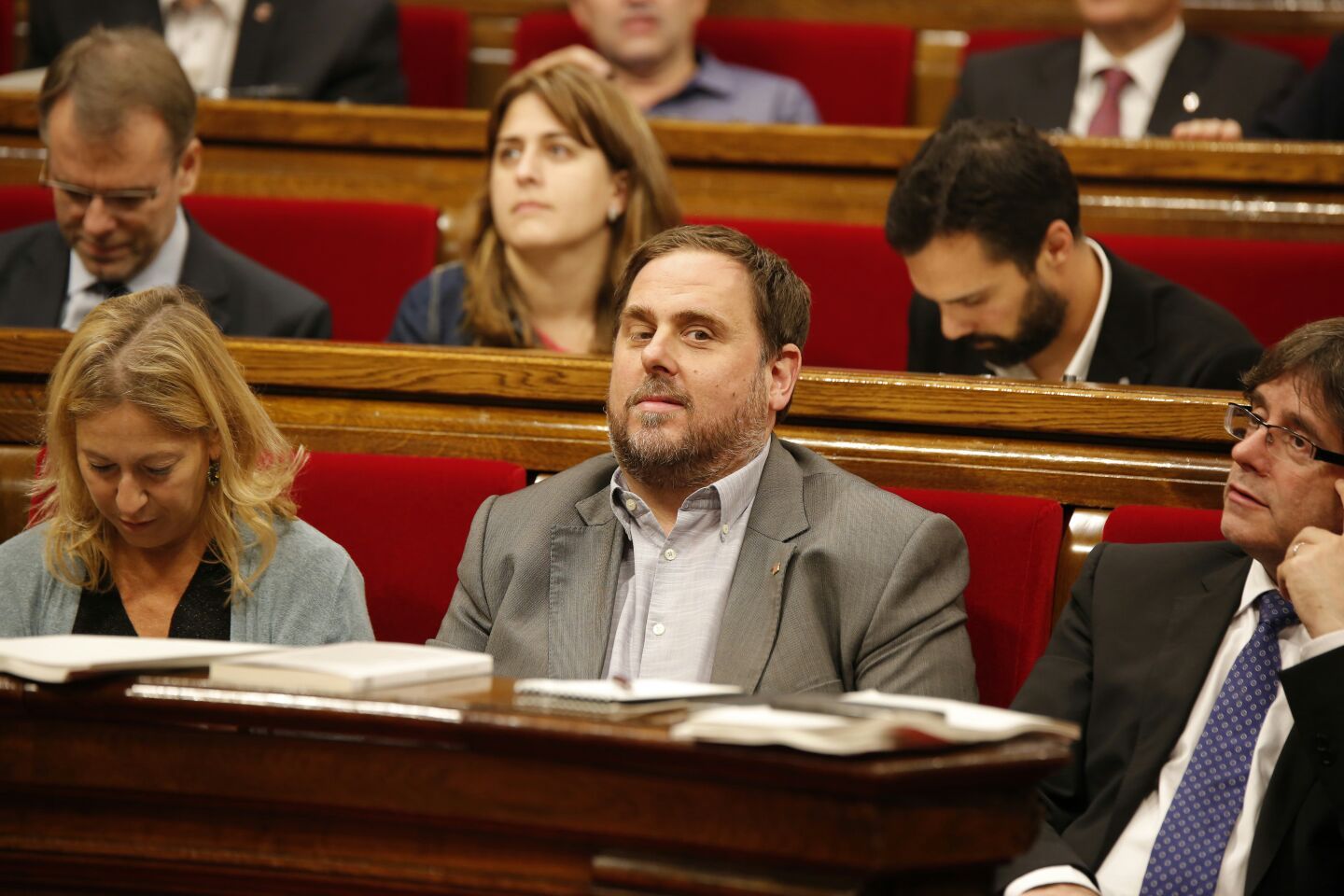Catalan acting vice-president, Oriol Junqueras, has presented his application to be transferred to a Catalan prison and to be allowed to attend the debates on the constitution of the Parliament's Board and the investiture of the new president.
The decision depends directly on the instructing magistrate, Pablo Llarena, but the public prosecutor will give their opinion on the question. They seem open to studying Junqueras's participation in the different events requested. This is the only hint the prosecutor has given during the whole case, not giving a straight "no" on the presentation of the petition, a subtle change to its line so far. The transfer request and the requests for permission to attend the specific debates, however,
After the Supreme Court's Penal Chamber denied Junqueras release on bail last Friday, his lawyer has turned to a new defence strategy revealed by El Nacional. The first step, to bring the vice-president closer to the Parliament and guarantee he can take up his position as a deputy.
The letter, which has already been presented to the Supreme Court, places special emphasis on the presumption of innocence and the exceptional nature of the measure of preventive detention without bail: "In accordance with the United Nations' Standard Minimum Rules for the Treatment of Prisoners (the Nelson Mandela Rules), prisoners awaiting trial should enjoy the presumption of innocence and have to be treated in a manner consistent with this presumption".
Junqueras's defence calls on his right to political representation: "No rule restricts the political rights of prisoners to the strict area of the right to suffrage and that is defended by the authorised doctrine, given that the category of 'political right' is much broader than that of the active and passive right to suffrage".
The letter remarks on the need for the presence of all the deputies-elect at the opening sessions of the new Parliament so as to not damage the working of the Chamber at a time when the independence side's absolute majority depends on each and every one of the seats they won: "[Even] in preventive detention, therefore, a deputy-elect has to be able to exercise their essential political functions, and although their imprisonment might be incompatible with their daily attendance at the legislative chamber or their participation in parliamentary commissions (where they could be substituted), it cannot mean their nonattendance at the plenary assembly, nor the loss of their vote, a situation which would alter the function of the Parliament itself and would affect a power of the state, damaging the right to political participation under article 23.2 or the public's right to political representation under article 23.1 of the Spanish Constitution. Internationally, this is linked with article 3 of protocol 1 of the ECHR".
The letter from Junqueras's defence calls on the principles defended by the Constitutional Court about fundamental rights given the fact that the deputies cannot be substituted and their votes cannot be delegated.
The vice-president's lawyer notes the dates for the sessions constituting the Parliament's Board, 17th January, and for the investiture of the new government, planned for ten days later. The letter mentions the application of security measures for the transfer if they are deemed necessary, as a formality, but it remains to be seen if the transfer is even permitted and under what conditions.

